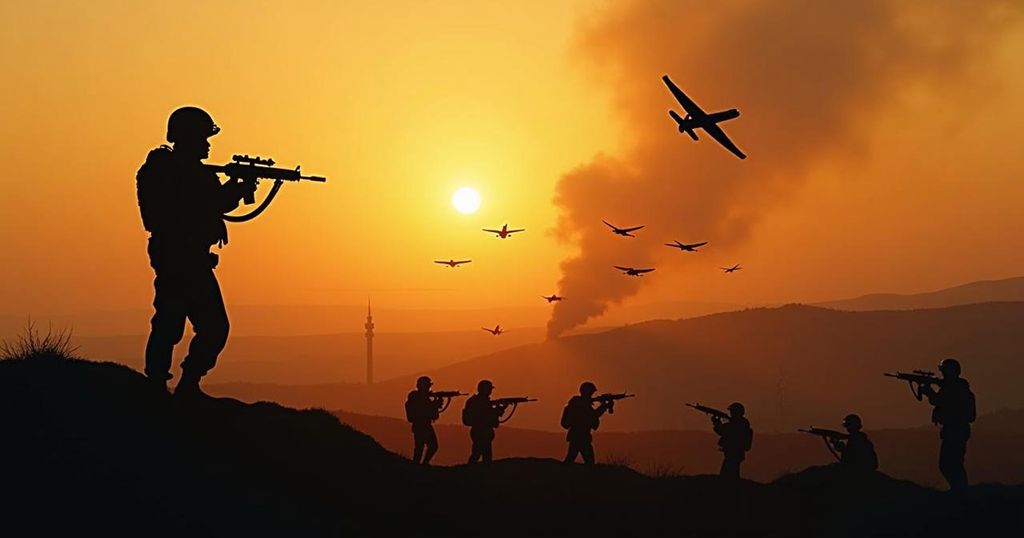The Israeli military has intensified strikes on Hezbollah targets in Lebanon following the confirmation of leader Hassan Nasrallah’s death. Iran vowed retaliation, declaring five days of mourning, while President Biden called it a “measure of justice”. Casualties are significant, with reports of 33 dead and nearly 200 injured as tensions escalate.
On Sunday morning, the Israeli Defense Forces reported conducting extensive air strikes targeting various Hezbollah installations across Lebanon, focusing on launch sites aimed at Israel. This military action follows the confirmation of the death of Hezbollah’s longstanding leader, Hassan Nasrallah, which was publicly acknowledged shortly before the strikes. In response to Nasrallah’s killing, Iran has vowed that the assassination “will not go unpunished,” and initiated a five-day period of public mourning. U.S. President Joe Biden characterized Nasrallah’s death as a significant “measure of justice” for the individuals affected by his prolonged actions of terror over the past four decades while advocating for a ceasefire between Israel and Hezbollah. Israeli military officials stated that their operations on Saturday included the elimination of prominent figures, including Ali Karki, a commander responsible for Hezbollah’s southern front, in an airstrike targeting the militant’s headquarters. The escalating violence has led to significant casualties, with reports indicating at least 33 fatalities and nearly 200 injuries across Lebanon due to ongoing hostilities. Israeli Prime Minister Binyamin Netanyahu expressed that the killing of Nasrallah could fundamentally alter the regional balance of power for the foreseeable future. The situation continues to develop, and stakeholders across the region are closely monitoring the implications of these events.
The backdrop of these recent developments involves the long-standing conflict between Israel, Hezbollah, and Iran. Hassan Nasrallah, as the leader of Hezbollah, played a pivotal role in the group’s operations and its confrontational stance against Israel. The militant group’s ties to Iran, particularly under the auspices of supreme leader Ayatollah Ali Khamenei, exacerbate tensions within the region, especially surrounding issues of sovereignty and national security. The public killing of a significant leader such as Nasrallah not only escalates military action from Israel but also incites a retaliatory promise from Iran, marking a critical junction in Middle Eastern geopolitics.
In summary, the recent military actions by Israel following the confirmation of Hassan Nasrallah’s death reflect a significant increase in hostilities within the region. Iran’s commitment to avenge this loss indicates a potential for further escalation, leading to more severe consequences for all parties involved. The situation remains fluid, and ongoing developments will be pivotal in shaping future relations and the overall security landscape in the Middle East.
Original Source: www.france24.com







